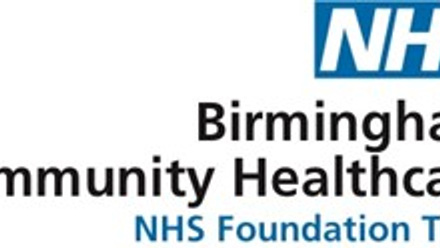Initial infection with COVID-19 can present with a wide range of different symptoms and severities and not everyone required hospital care or had taken a test.
The nature of long-lasting problems may be very wide-ranging and could include: fatigue, limited exercise tolerance, breathlessness, pains, anxiety, depression, brain fog/thinking problems, loss of appetite or weight, as well as other issues.
About the service
The Leeds Long Covid Community Rehabilitation Service, commissioned by NHS Leeds Clinical Commissioning Group (CCG), is a partnership between Leeds Community Healthcare NHS Trust and The Leeds Teaching Hospitals NHS Trust. It has been developed to help people in Leeds who are experiencing new, long-lasting problems 12 weeks or more after a confirmed or suspected COVID-19 infection which are significantly impacting how they are able to function in day-to-day life.
The service is Allied Health Professional-led, with a team of physiotherapists, occupational therapists and dietitians, working with specialist consultants including a cardiologist and respiratory specialists, as well as a rehab consultant and temporary rehab registrar.
The team is also looking to recruit a psychologist, but in the meantime have worked closely with the Leeds Mental Wellbeing Service.
The service is intended to provide rehabilitation support to anyone who has had confirmed or suspected COVID-19 infection, who experiencing new, long-lasting problems that significantly impact their ability to function in day-to-day life.
Referrals into the service are via GP, Neighbourhood Team or Community Respiratory Team.
The service follows a rehab model, designed to empower patients to improve and self-manage their condition.
The service draws on both local and national funding. Initially the funding was through the provider accessed ‘COVID top-ups’ available from NHS England. When national funding became available this was added to the CCG pre-commitment for 21/22 to allow for increased staffing.
Dietetic service
The Dietetic Team is made up of a band 6 dietitian three days a week and one day a week from a band 7. The team deal with a wide range of issues, including loss of sense of smell and taste, IBS-type symptoms, loss of appetite, swallowing difficulties, unintentional weight loss or gain and nausea. Weight gain and poor diet quality have been areas of particular concern for patients, often related to fatigue - which is one of the most common symptoms of Long Covid.
While much of the provision by the service was originally delivered through home visits, the dietetic team has primarily utilised telephone and video consultations, with occasional home visits as needed. The number of patients has led to the development of a clinic-based service. The referral rate into the service has gradually increased and they are currently receiving approximately 100 referrals every month. Around one in five require dietetic support.
The team has developed a number of specific resources to support patients, including:
- Smell training resource designed to improve and recover the sense of smell
- A smell and taste changes podcast designed to support patients with self-management
- Support with fatigue using the principles of a low-GI diet
Challenges
The patient profile has been younger than expected, with many previously fit and healthy individuals. This has been challenging as many patients do not have experience of illness or rehabilitation, and are often expecting a relatively “quick fix”. Having support from medics has helped patients understand the clinical evidence and best practice.
Some have required support since catching COVID-19 in the first wave in March/April 2020, so have had symptoms for a very long time. Evidence is still not clear on the likely long-term impacts and it has been difficult to provide clear timescales to patients.
Evaluation of dietetic service
The dietetic team has developed seven Likert-scale based outcome measures, which are reported quarterly to the CCG as part of a wider evaluation of the service.
Low scores for diet quality and concerns about weight are the most often reported, and the dietetic team has seen very positive responses.
On referral, 71% of patients rate their diet quality as three out of five or below. On discharge, 92% rate their diet quality as four or five.
On referral, 66% of patients are worried about their weight (three or below). On discharge, 67% rate this worry as four or five.
Further information
- For more information please contact [email protected]
- Read some of the service’s public resources here
- Read the Leeds CCG Post COVID-19 pathway and guidance


